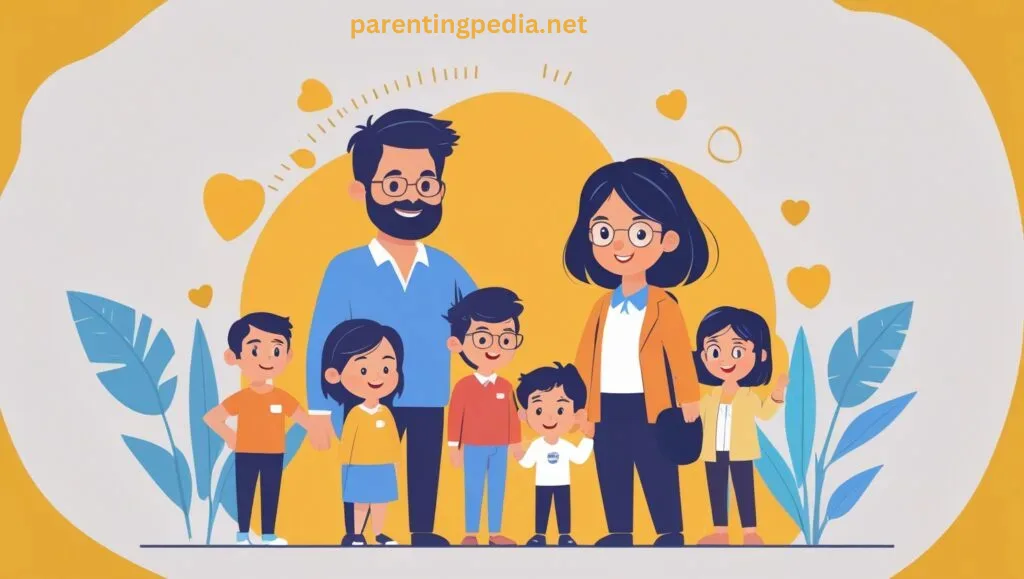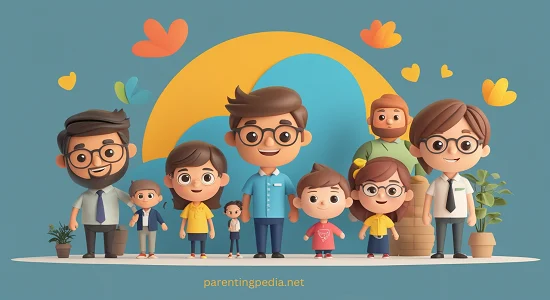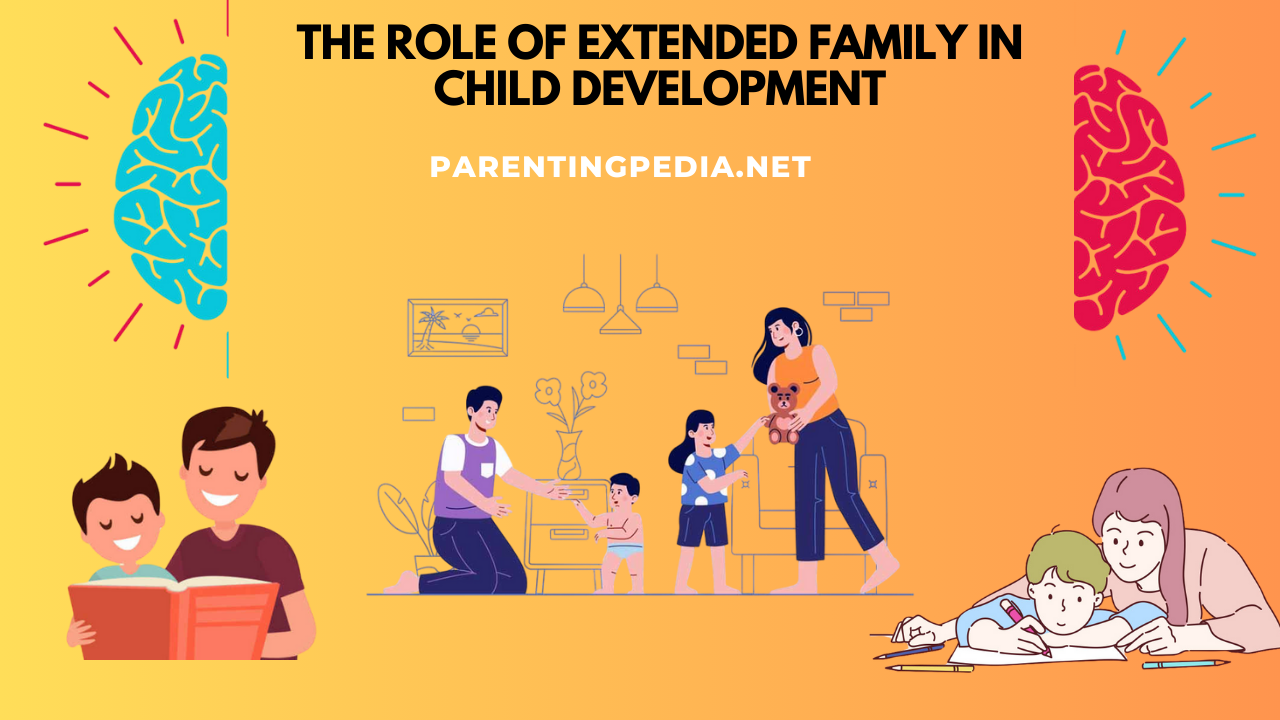Family plays a crucial role in shaping a child’s personality, values and emotional well-being. While parents are the primary caregivers, the extended family like grandparents, aunts, uncles, cousins and even close family friends also significantly impacts a child’s growth and development. In many cultures, extended family members act as additional support systems, offering love, wisdom, and guidance. Their involvement contributes to emotional security, social development and cognitive growth in children. This article explores the importance of extended family in a child’s development, the different ways they influence a child’s life and how to maintain a healthy relationship between extended family members and the child.
Understanding The Extended Family
An extended family includes relatives beyond the nuclear family (parents and siblings). It may consist of:
- Grandparents (maternal and paternal)
- Aunts and Uncles
- Cousins
- Great-grandparents and distant relatives
- Close family friends who act as extended family
Depending on cultural backgrounds and living arrangements, the role of extended family members in a child’s life can vary. Some families live in multigenerational households, where grandparents and other relatives actively participate in daily caregiving. Others maintain close bonds despite living separately, staying connected through frequent visits, phone calls or family gatherings.

The Impact Of Extended Family On Child Development
1. Emotional Support And Stability
Children need a strong emotional foundation to develop confidence and resilience. Extended family members offer additional sources of love, comfort and encouragement, which help children feel secure and valued. Having multiple caregivers who offer emotional support allows children to build a sense of belonging, reducing feelings of loneliness or insecurity like:
- Grandparents provide unconditional love and wisdom, often acting as a calming presence during family challenges.
- Aunts and uncles can serve as mentors, guiding children through difficult situations.
- Cousins act as friends and companions, helping children develop strong social skills.
2. Cultural And Moral Education
Extended family plays an essential role in passing down cultural traditions, values, and ethics. Children learn about their heritage through stories, festivals, and family rituals shared by older relatives.
- Grandparents often share folklore, family history, and traditional customs, helping children connect with their roots.
- Aunts and uncles reinforce family values, such as respect, kindness, and responsibility in children.
- By growing up in a culturally rich environment, children develop a strong sense of identity and belonging.
3. Social And Communication Skills
Interacting with extended family teaches children how to communicate, resolve conflicts and express emotions effectively. Having a broad support system allows children to practice social skills in a safe and loving environment, preparing them for future relationships and professional interactions. Through family gatherings and celebrations, children learn:
- How to interact with people of different ages.
- The importance of teamwork and cooperation.
- How to express gratitude and empathy.
4. Academic And Intellectual Growth
Extended family members can provide additional educational support to children. Parents may not always have the time or expertise to help with studies, but grandparents, aunts, uncles or older cousins can step in to offer guidance. Such support not only enhances a child’s academic growth but also encourages a love for lifelong learning.
- Grandparents often encourage reading habits by sharing stories or discussing history.
- Older cousins can help with schoolwork, tutoring, and career guidance.
- Aunts and uncles with professional experience may offer career advice and mentorship.
Also Read: How Parents Can Help Kids Make Good Friends
5. Role Models And Life Lessons
Children look up to various family members as role models. Observing the experiences, struggles, and successes of extended family members helps children learn important life lessons. By interacting with different personalities within the family, children gain diverse perspectives, which help them develop their own values and aspirations such as:
- Seeing hardworking family members teaches children the value of perseverance.
- Observing kindness and generosity encourages them to develop empathy.
- Learning about the challenges faced by older family members teaches resilience and problem-solving to children.
6. Childcare And Practical Support
Extended family members provide practical support in raising children, especially in dual income households or single parent families. Having a reliable support system eases parental stress and ensures that children receive care from trusted family members in following ways:
- Grandparents often help with babysitting, allowing parents to balance work and family responsibilities.
- Aunts and uncles may step in when parents are unavailable, offering care and supervision.
- Older cousins can be playmates and caregivers, ensuring younger children are engaged and entertained.
7. Strengthening Family Bonds And Identity
Strong family bonds contribute to a child’s emotional well-being and sense of identity. Frequent interaction with extended family members promotes a deep connection with their roots. Feeling connected to a strong family network instills confidence and emotional security in children.
- Family gatherings and reunions help children feel part of a larger community.
- Shared family traditions reinforce a sense of belonging in children.
- Stories about ancestors create pride in family heritage in children.

Challenges Of Extended Family Involvement
While extended family plays a positive role in child development, conflicts and differences in parenting approaches can sometimes create challenges.
1. Conflicting Parenting Styles
Different family members may have different opinions on discipline, education, and lifestyle choices. This can lead to disagreements and confusion for the child. Solution of this problem is that parents should set clear boundaries and communicate their parenting style to extended family members while respecting their input.
2. Over Involvement and Interference
Sometimes, extended family members may become overly involved in decision-making which can create tension. Parents should maintain open communication and politely establish limits on interference while valuing their advice.
3. Favoritism Among Children
In some families, favoritism towards certain children can lead to feelings of resentment and insecurity. Encouraging fairness and inclusivity in family interactions can reduce favoritism among children ensuring that all children feel equally valued and loved.
4. Distance And Communication Barriers
In modern times, families are often spread across different cities or countries, making it difficult to maintain close relationships. Utilizing technology for regular video calls, virtual storytelling and online family gatherings can help to strengthen connections and reducing communication barriers.
How To Strengthen The Role Of Extended Family In Child’s Life
1. Encourage Regular Interaction
Parents can encourage regular interaction of extended family with children by:
- Planning family gatherings, reunions, and celebrations.
- Arranging video calls and messages to stay connected with distant relatives.
2. Promote Positive Family Involvement
Parents can promote positive family involvement by:
- Involving grandparents in reading time or storytelling.
- Encouraging aunts, uncles and cousins to mentor children in academics, hobbies or career guidance.
3. Create Supportive Family Culture
Parents can create supportive family culture by:
- Promoting respect and appreciation for all family members.
- Teaching children to value and learn from different generations.
4. Maintain Healthy Boundaries
Parents can maintain healthy boundaries by:
- Balancing extended family involvement with parental authority.
- Addressing conflicts respectfully and ensuring family harmony.
5. Teach Children The Importance Of Family
Teach children the importance of family by:
- Sharing family history, traditions and cultural values.
- Encouraging children to express gratitude for their extended family’s love and support.
Conclusion
The extended family plays a crucial role in a child’s overall development by providing emotional support, cultural education, academic guidance, and social skills. Grandparents, aunts, uncles, and cousins contribute to a child’s sense of identity and belonging, helping them grow into confident and well-rounded individuals. While challenges may arise, maintaining strong, respectful, and positive relationships with extended family members benefits both parents and children. By promoting meaningful connections, families can create a supportive environment that nurtures the emotional, intellectual, and social well-being of children, ensuring they thrive throughout life.
FAQ
What are the roles of the extended family in child development?
The extended family plays a vital role in child development by providing emotional support, cultural education and moral guidance. They help build confidence, social skills and resilience. Grandparents, aunts, uncles, and cousins offer mentorship, childcare, and educational support promoting a strong sense of identity, belonging and stability in a child’s life.
What are the benefits of extended family for children?
Extended family benefits children by offering emotional support, cultural education, and life guidance. They provide stability, boost confidence, and teach social skills. Grandparents, aunts, uncles, and cousins serve as mentors, role models, and caregivers enriching a child’s life with love, wisdom and a strong sense of belonging and identity.
Remember, the greatest reward of parenting lies in watching
your children soar with love and confidence.
Till then keep smiling and be happy

